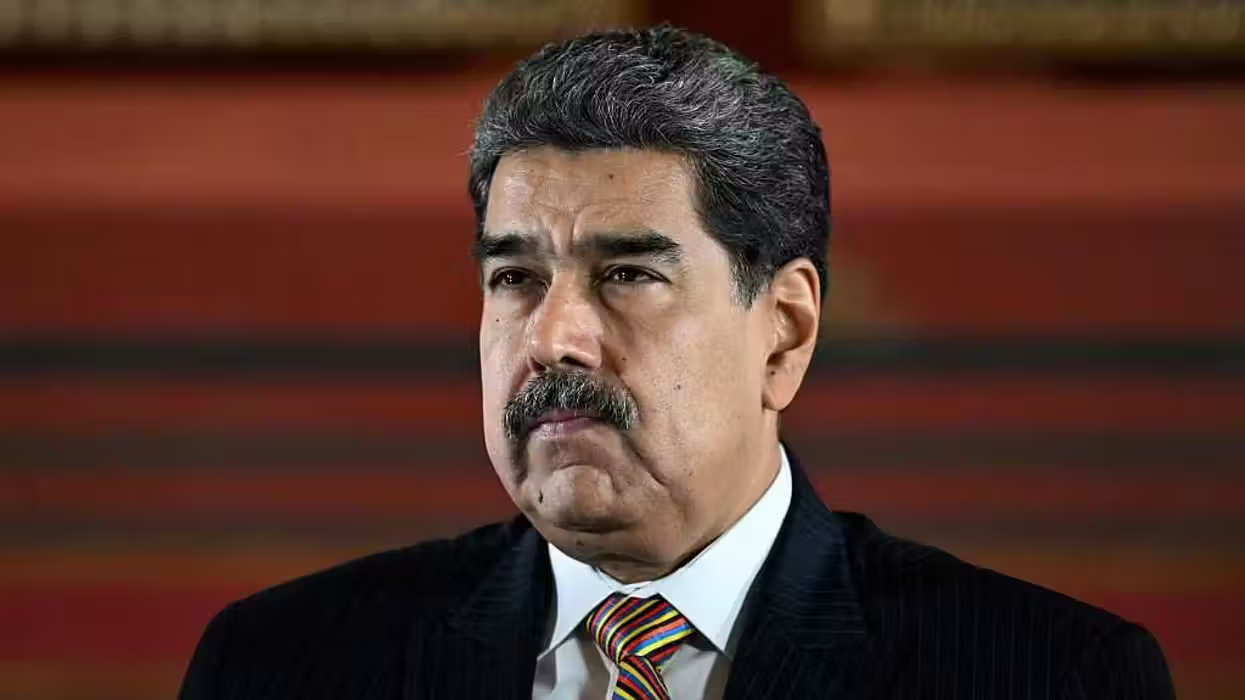
© 2026 Blaze Media LLC. All rights reserved.
As our nation becomes increasingly secular, it also becomes increasingly ignorant of the spiritual traditions responsible for inspiring our way of life. There's no time like this week to reaffirm what drove those first pilgrims to brave treacherous seas on the Mayflower and settle here "for the glory of God and advancement of the Christian faith."
Christians refer to this as "Holy Week" because it includes arguably the three most pivotal events of our faith. This is the first in a three-part series looking at each of those events, explaining what they meant at the time and what they mean to us now — in 500 words or less.
The series isn't a definitive theological exercise, but an attempt to make the traditions that inspired liberty in America accessible to Americans once more. Hopefully this might inspire you to seek out more information.
Part 1 — Palm Sunday
What it is
Palm Sunday is the day Jesus Christ made his triumphant entry into the sacred city of Jerusalem as messiah. It got its name from the palm branches his fellow Jews both waved at him and laid down in front of him. In the ancient world, palm branches symbolized victory, power, and rejoicing. The people were rejoicing that the messiah had finally come, presumably to re-establish the throne of King David and restore Israel's prominence. In Hebrew, "messiah" means "chosen one" or "anointed one," chosen or anointed to represent the Kingdom of God on earth. Its Greek equivalent in the New Testament is "Christ."
Why it matters
For over three years, Christ had conducted a public ministry throughout the country, preaching, teaching, and performing miracles to affirm that he was the messiah. At the heart of his ministry was the individual's need for a relationship with God — to be saved from his or her sins to restore that relationship, and then given the grace to faithfully fulfill God's purpose for his or her life. Unfortunately, many of the people imposed their expectations on Christ and who they wanted him to be instead. They weren't looking to turn away from their sins as much as they wanted a conquering hero to vanquish their Roman oppressors. So within a matter of days, some of the same people who welcomed him with rejoicing would demand his execution, because Christ wouldn't conform to their desires but wanted to transform them with the truth instead.
What it means for us today
Despite the secular age in which we live, references to God or Jesus are plentiful in our culture. However, all too often those references are us projecting who we want God to be and what we want Him to do for us, rather than humbly worshipping God for who He is and aligning our will with His. That's why, despite all the "God talk," our culture moves further and further away from "the laws of nature and nature's God" our Declaration of Independence refers to and now actively seeks to punish and shun those who still want to live according to God's Word (the Bible).
Furthermore, there's a challenge here for believers, too — be careful seeking after public opinion or approval. The mob is fickle, and it doesn't take long for the same people who once celebrated you to crucify you.
Don't miss a minute of Steve Deace on CRTV! Sign up today!
Want to leave a tip?
We answer to you. Help keep our content free of advertisers and big tech censorship by leaving a tip today.
Want to join the conversation?
Already a subscriber?
BlazeTV Host
Steve Deace is the host of the “Steve Deace Show” and a columnist for Blaze News.
SteveDeaceShow
Steve Deace
BlazeTV Host
Steve Deace is the host of the “Steve Deace Show” and a columnist for Blaze News.
@SteveDeaceShow →more stories
Sign up for the Blaze newsletter
By signing up, you agree to our Privacy Policy and Terms of Use, and agree to receive content that may sometimes include advertisements. You may opt out at any time.
Related Content
© 2026 Blaze Media LLC. All rights reserved.
Get the stories that matter most delivered directly to your inbox.
By signing up, you agree to our Privacy Policy and Terms of Use, and agree to receive content that may sometimes include advertisements. You may opt out at any time.






